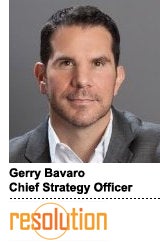 With the revamp of its partner program last week, Facebook is for the first time allowing agencies to pursue certification – under a specialization called Media Buying. (Don’t call it a badge.)
With the revamp of its partner program last week, Facebook is for the first time allowing agencies to pursue certification – under a specialization called Media Buying. (Don’t call it a badge.)
The change is a tacit acknowledgement that Facebook’s key relationships in the ad ecosystem include not only the builders of tools for reaching audiences on its platform, but also service providers who leverage Facebook and partner technologies to reach and communicate with that audience.
Today just two agencies have gotten past the velvet rope: Resolution Media, an Omnicom Group digital and performance media agency, and Publicis Groupe-owned MediaVest.
But it’s a sure bet that more agencies will be listed as they jump through the hoops set up by Facebook’s partner managers. Just how many is unclear, since some of those hoops are encircled by flames.
For more on Facebook’s requirements to let agencies past its velvet rope, AdExchanger spoke with Resolution Media’s Gerry Bavaro, chief strategy officer at Resolution Media.
AdExchanger: Why would an agency want to be listed in Facebook’s partner program?
GERRY BAVARO: The previous Facebook PMD program primarily awarded badges to companies for the development of technology that integrates with Facebook’s APIs. At Resolution, we were logging into Facebook directly and using Kenshoo, Salesforce.com and Brand Networks – all PMD technologies – to manage campaigns.
The challenge was that our clients would look at the list, and over and over again they would ask us, “How come you’re not a PMD, and how come we don’t perceive that you’re getting the support Facebook is providing to a [company like] Brand Networks?” We had to continually tell clients, we are dancing with Facebook. We had to unwind this perception that we’re not engaged with them.
We also had to do a lot of education for our clients and in the market around how we pull the levers. We integrate the social media buying with a much wider content and social media strategy, including integration with TV.
Early on we were pushing Facebook to recognize agencies like us even though we don’t develop tech. We wanted them to shift to a model that recognizes innovation.
How did you ultimately get the designation?
Once we learned that Facebook would move toward a model that recognizes agencies, our efforts shifted to meeting very specific criteria.
The criteria were extensive and included:
First we had to prove consistent spend levels across Facebook. If you’re in and out of Facebook from month to month, that doesn’t really show Facebook that you’re telling a story about the value of social to the marketer today. If you’re in for $10 million one month and $2 million the next, if it’s a yo-yo up and down, why would Facebook want to broadcast that you’re a great company to work with?
Second, we had to show we were adopting and testing every new Facebook product that rolled out. We had to make use of things like mobile and video, which is a huge push for them. We had to show the breadth and the depth. We had to prove that we were utilizing best-of-breed Facebook PMD technologies.
Third, we had to show that we not only had a solid grasp of the Facebook ecosystem with these third parties, but also a strong command of the Facebook UI.
Facebook has “highlighted” Resolution in four sectors: retail, consumer packaged goods, entertainment and finance. What’s behind that?
It means we have at least one major client in each of those verticals that’s heavily engaged with Facebook.
What was the spend criteria? Is it a past spend or future spend commitment?
It’s both.
What else was required?
We had to prove we provide structure to our clients not just in one region but across all regions, and in different disciplines. Facebook is asking agencies, can they deliver for a client on the West Coast? Can they deliver for a client that has direct marketing needs?
What is the value to Resolution in being part of the program, aside from assuaging existing clients? Do you expect to win new business?
Yes. I think the biz dev benefits and market perception benefits are very clear.
Omnicom Group was the holding company launch partner for Facebook’s Atlas ad management platform. Did your use of Atlas and other Facebook ad tech holdings like Audience Network help you get the partner classification?
Things like that are considered by Facebook. It was not a formal criteria, but it was weighed.
Facebook’s partner teams never said, “Look, because you are doing this first-ever test of Atlas and you’re utilizing a DMP, that’s what we’re going to hold everyone else up against.”
It was really about how much we used the entire Facebook ecosystem for our clients. Which absolutely makes sense.












